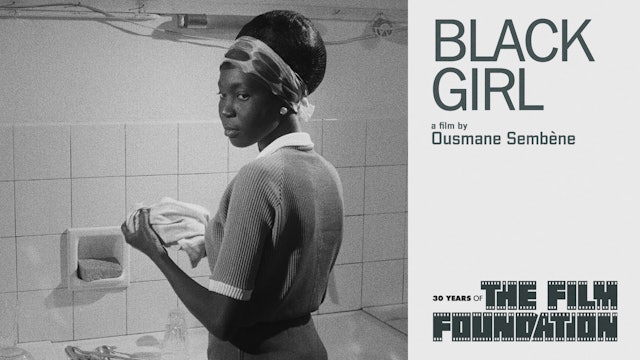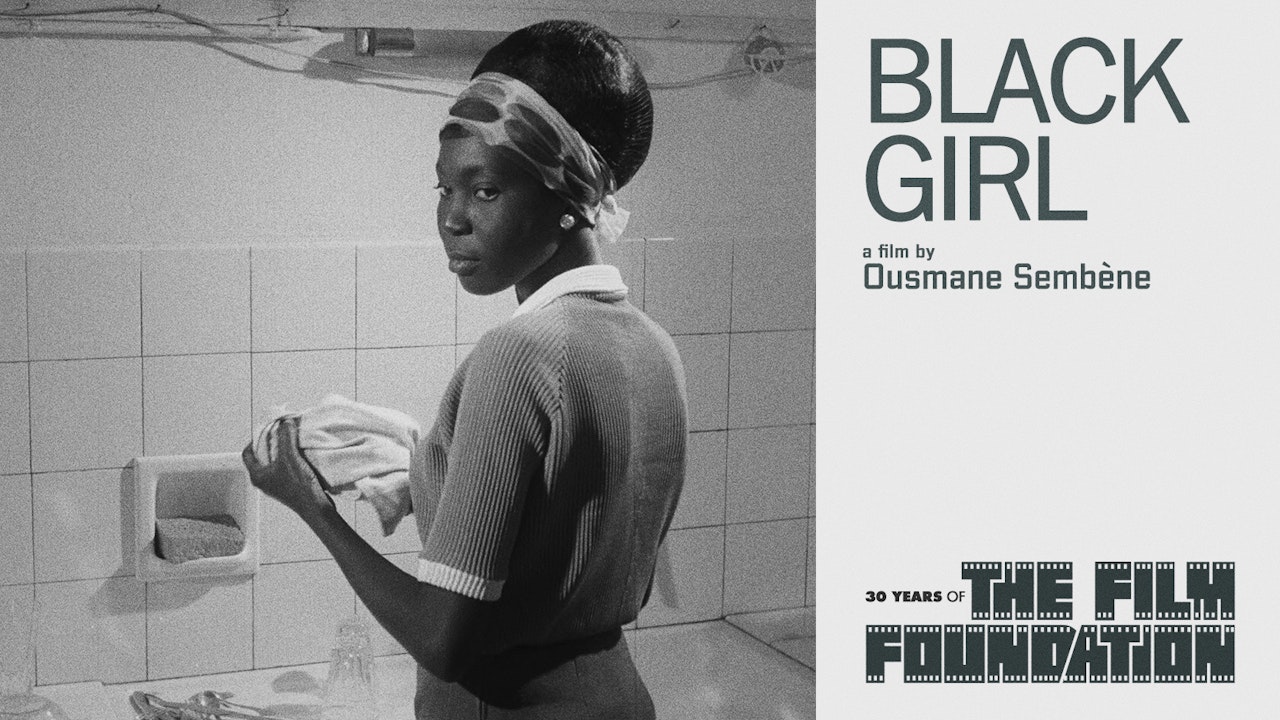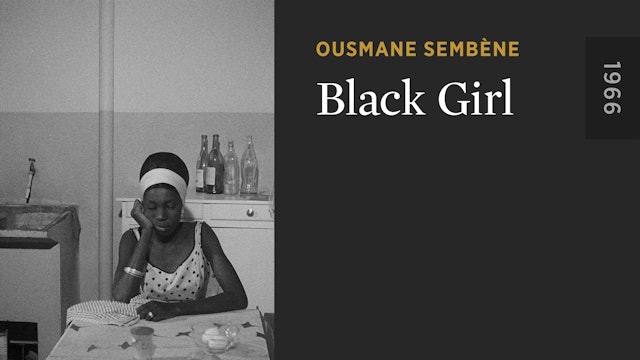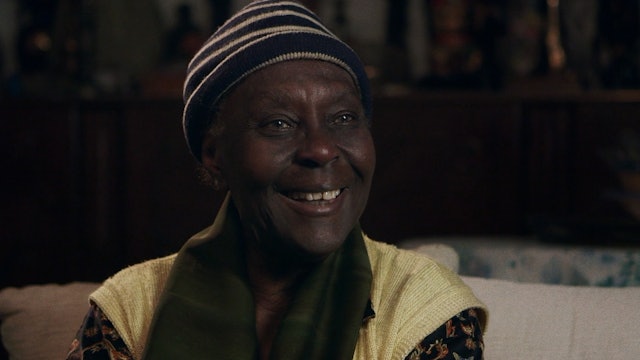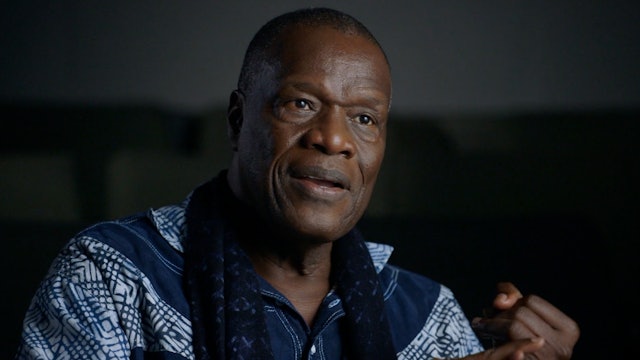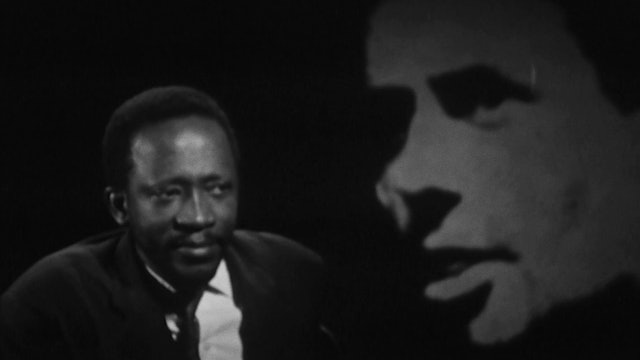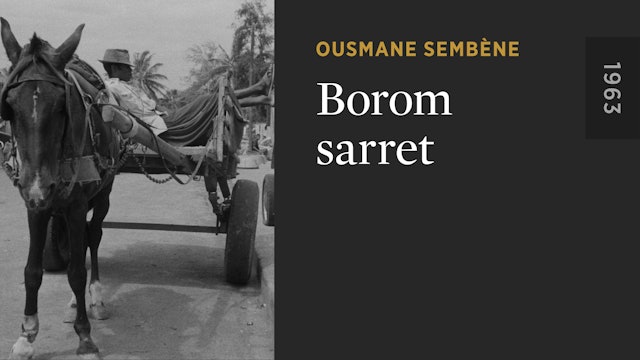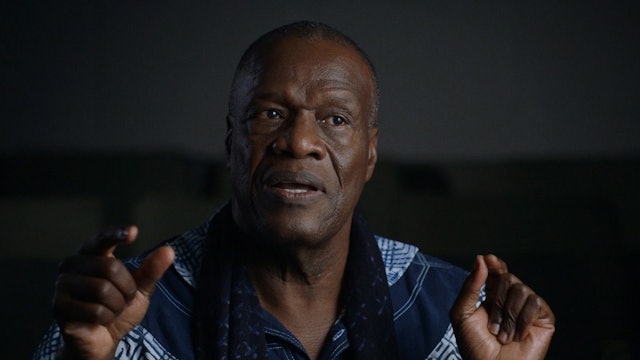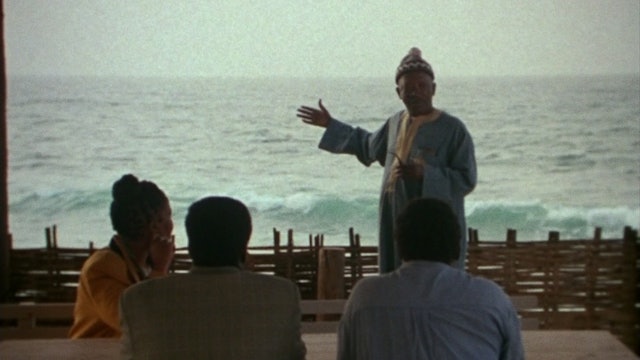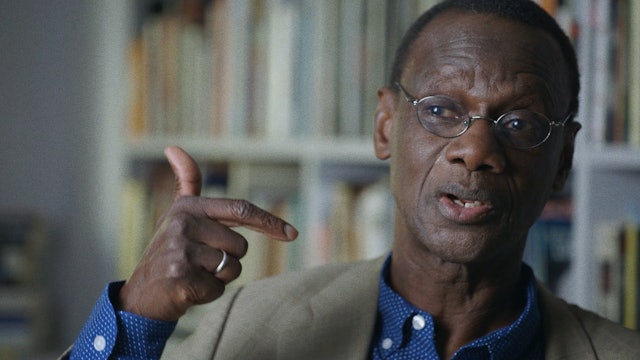Black Girl
Martin Scorsese’s World Cinema Project
Directed by Ousmane Sembène • 1966 • Senegal, France
Starring M'Bissine Thérèse Diop
Ousmane Sembène was one of the greatest and most groundbreaking filmmakers who ever lived, as well as the most renowned African director of the twentieth century—and yet his name still deserves to be better known in the rest of the world. He made his feature debut in 1966 with the brilliant and stirring BLACK GIRL. Sembène, who was also an acclaimed novelist in his native Senegal, transforms a deceptively simple plot—about a young Senegalese woman who moves to France to work for a wealthy white family and finds that life in their small apartment becomes a prison, both figuratively and literally—into a complexly layered critique of the lingering colonialist mind-set of a supposedly postcolonial world. Featuring a moving central performance by M’Bissine Thérèse Diop, BLACK GIRL is a harrowing human drama as well as a radical political statement—and one of the essential films of the 1960s.
Restored by the Cineteca di Bologna/L’Immagine Ritrovata laboratory, in association with the Sembène Estate; INA, Institut National de l’Audiovisuel; Éclair; and the Centre National de Cinématographie. Restoration funded by The Film Foundation’s World Cinema Project.
-
Black Girl
Directed by Ousmane Sembène • 1966 • Senegal
Starring M’Bissine Thérèse DiopOusmane Sembène was one of the greatest and most groundbreaking filmmakers who ever lived, as well as the most renowned African director of the twentieth century—and yet his name still deserves to be better known in ...
Extras
-
Tessa Thompson on BLACK GIRL
-
M’Bissine Thérèse Diop on BLACK GIRL
Conducted in 2016, this interview with actor M’Bissine Thérèse Diop covers her lead role in BLACK GIRL.
-
Manthia Diawara on BLACK GIRL
Conducted in 2016, this interview with filmmaker and cultural theorist Manthia Diawara (“African Cinema: Politics and Culture”) analyzes Ousmane Sembène’s 1966 film.
-
Prix Jean Vigo: Ousmane Sembène
This excerpt from a March 22, 1966, broadcast of the French television program “JT de 20h” features an appearance by director Ousmane Sembène after BLACK GIRL was awarded the Prix Jean Vigo.
-
Language and Power in BLACK GIRL
In his watershed feature debut BLACK GIRL, master director Ousmane Sembène offers a searing critique of colonialism’s legacy via the story of Diouana, a young Senegalese woman whose new life in France working for a white family gradually reveals itself to be a trap. In this edition of Observation...
-
Borom sarret
Directed by Ousmane Sembène • 1963 • Senegal
Starring Ly Abdoulay, AlbourahThis groundbreaking short film, which won first prize at the 1963 Touris Film Festival in France, was the directorial debut of Ousmane Sembène.
Restored in 2013 by the Cineteca di Bologna/L’Immagine Ritrovata laboratory...
-
Wyatt Cenac on BOROM SARRET
-
Manthia Diawara on BOROM SARRET
In this 2016 piece, filmmaker and cultural theorist Manthia Diawara (“African Film: New Forms and Aesthetics and Politics”) addreses the significance of Ousmane Sembène's debut film.
-
Sembène: The Making of African Cinema
Made by Manthia Diawara and Ngũgĩ wa Thiong'o in 1994, this documentary illuminates the philosophies and aesthetics of director Ousmane Sembène through conversations with Diawara, film students, and filmmaker John Singleton.
-
Samba Gadjigo on Ousmane Sembène
In this 2016 piece, filmmaker and professor of French Samba Gadjigo (SEMBENE!) characterizes what defines the work of Ousmane Sembène.

